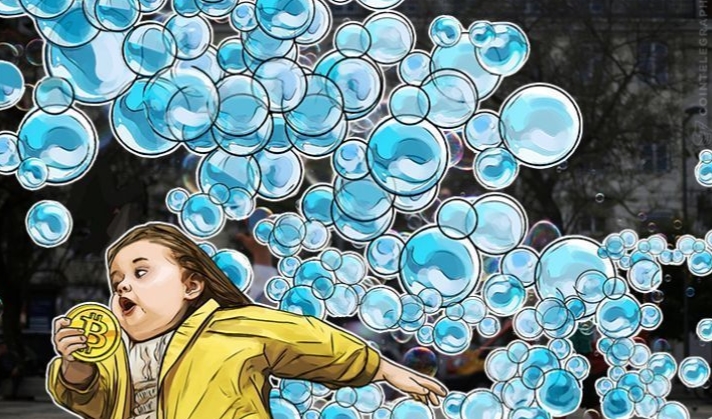
The chief investment officer (CIO) of the Investment Strategy Group at Goldman Sachs, Sharmin Mossavar-Rahmani, said in an interview with Business Insider on Feb. 27 that cryptocurrencies are in a bubble, which, when it bursts, will impact only 1 percent of global GDP.
Mossavar-Rahmani, who guides investment strategy for clients with over $10 mln in assets, said that cryptocurrencies are “the hot topic” among her clients and colleagues. She said that Goldman Sachs acknowledges the opportunities that can be brought by Blockchain technology to many fintech companies, but cryptocurrencies “in their current format” are “in a bubble.”
In the interview, Mossavar-Rahmani referenced data from a public report by Goldman Sachs’ Investment Strategy Group, comparing price trends of Bitcoin (BTC) and Ethereum (ETH) with equity bubbles of the past like the TOPIX in 1990, and Nasdaq in 2000.
Mossavar-Rahmani argues that TOPIX and Nasdaq look “like a flat line” compared to crypto, and even compared to the infamous Tulip bubble in the early 1600s, Bitcoin’s price is too high. Mossavar-Rahmani added that the Ethereum price is “is even more astronomical,” as the bubble on the graph far outstrips even that of Bitcoin.
When considering the impact of a cryptocurrency “bubble burst”, Mossavar-Rahmani suggested that it wouldn’t lead to a global financial crisis, as cryptocurrencies make up a smaller part of the global economy than previous bubbles.
“Cryptocurrencies are a much smaller part of the global economy, whether you compare it to US GDP or global GDP, it’s less than 1% of global GDP,” Mossavar-Rahman stated.
She admits as there has been significant investment in building exchanges, infrastructure, and hedge funds in the crypto space, when the bubble bursts some people “will get hurt… But it’s a very, very small part of global GDP.”
On Jan. 31, Lloyd Blankfein, CEO of Goldman Sachs, denied that Goldman Sachs would be opening a cryptocurrency trading desk, even though the New York bank has owned a stake in a crypto trading desk Circle since 2015.


